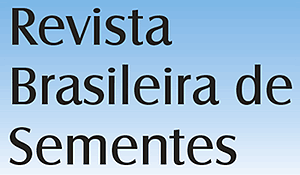Availability of seeds infected by fungi or other transmissible pathogens by this way is extremely important in seed pathology for several purposes. The present research was conducted to evaluate the use of the water restriction technique in the inoculation of cotton seeds in order to obtain seeds infected by Colletotrichum gossypii, Colletotrichum gossypii var. cephalosporioides, Botryodiplodia theobromae and Fusarium oxysporum f. sp. vasinfectum. The premise was based on the fact that seed infection is better ensured and controlled by keeping the seeds in contact with the developing fungal colonies on agar media containing mannitol at osmotic potentials that would arrest seed germination for a longer period of time. In this study mannitol was tested at the potentials of 0, -0.4, -0.6, -0.8 e -1 MPa. Seeds on the fungal colonies were placed in a growth room at 25ºC, with a photoperiod of 12 hours, where they remained for different periods of time, according to the water potential used. After each incubation period seeds were taken out of the media and dried out on paper towels in a lab environment and submitted to the germination, emergence and health tests. Incubation of seeds at water potential ranging from -0.8 to -1 MPa, provided conditions to impede seeds from germinating for a period of up to 4 and 5 days, respectively, and then presenting a greater level of infection and higher percentages of diseased seedlings.
Seed infection; water restriction; seed pathology; seed pre-conditioning




